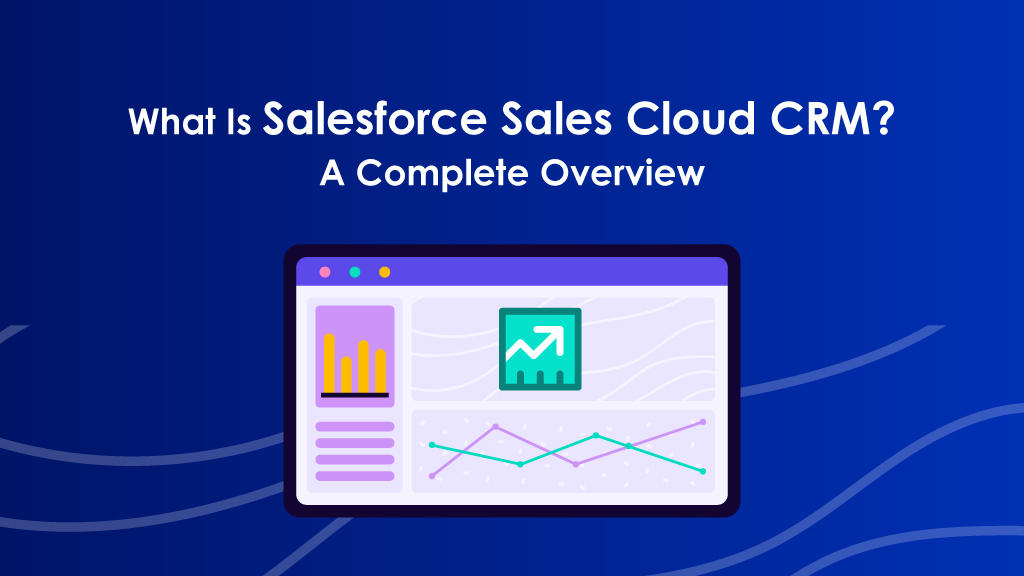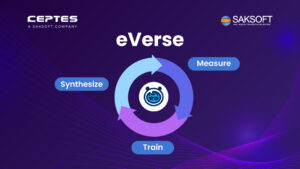In today’s fast-paced business environment, customer relationships are at the heart of every successful organization. As companies strive to enhance customer engagement and drive revenue growth, a robust CRM (Customer Relationship Management) platform becomes indispensable. Enter Salesforce Sales Cloud—an industry-leading CRM solution designed to streamline your sales process, boost productivity, and foster deeper customer connections.
But what exactly is Salesforce Sales Cloud, and how can it transform the way businesses manage their sales operations? In this blog, we’ll dive into the core features and benefits, helping you understand why it’s the go-to choice for sales teams worldwide. Whether you’re new to Salesforce or looking to optimize your CRM strategy, this guide is your starting point for leveraging Sales Cloud’s full potential.
What is Salesforce Sales Cloud?
The Sales Cloud is a Salesforce CRM based on the cloud. Also, Sales Cloud CRM helps businesses in better contact management, sales forecasting, Salesforce automation, and improving productivity. It enables sales teams, managers, and executives to manage relationships with customers, sales-cycle efficiently, access valuable data about competition & own business, and prioritize tasks.
This system can be beneficial for companies of all sizes and types – B2B and B2C because it is a SaaS (Software-as-a-Solution) model. Meaning that the companies don’t need to work on those on-premise apps that demand servers, new upgraded versions, and have software issues. Salesforce Sales cloud CRM allows companies to reduce their upfront costs, easy upgrades, quick setup & deployment, and scale it as their business grows.
A robust CRM strategy can help you stay on a leading edge. With Salesforce Sales Cloud CRM, businesses can start focusing on their core businesses and leave the sales & customer relations to the cloud.
Salesforce Sales Cloud Features
Salesforce Sales Cloud is a comprehensive CRM solution designed to streamline sales processes, enhance productivity, and improve customer relationships. Its key features include:
- Lead Management: Track and optimize leads throughout the sales pipeline with intelligent insights.
- Opportunity Management: Prioritize deals with AI-driven predictions and automated tracking of milestones.
- Contact Management: Centralize customer data, including interactions and communication history.
- Sales Forecasting: Make accurate predictions with real-time insights and analytics.
- Mobile Access: Empower your sales team with on-the-go access to critical CRM data via mobile apps.
- Integration Capabilities: Seamlessly integrate with third-party tools and platforms to enhance functionality.
Key Benefits of Salesforce Sales Cloud
Generate More Sales
Whatever is your industry, geography, or company size, we all want to achieve significant growth in our business. For this reason, we all need to develop a structure which helps our sales reps & managers to do their jobs efficiently, and with the help of the best technology, we can avail for them. Salesforce CRM enables you to make the entire process faster, create workflows, and speed up the approvals process for automating manual tasks, such as assembling complex proposals and filling out orders.

Boost Productivity
Salesforce CRM is highly portable, and a sales rep can log calls, track opportunities, update data, and respond to the leads anytime and anywhere using their smartphone! This increases their productivity and efficiency!
Also Read: Leverage Salesforce Sales Cloud and Pardot to Drive Higher Customer Engagement
Make Informed Decisions
Without a robust system behind, you may find it challenging to make critical decisions fast. But by tracking conversion rates, lead volumes, and your pipeline all in real-time, you can check the business’s actual state, which allows you to decide better from anywhere. Now you don’t need to carry your office laptop everywhere or connect with the IT staff to create reports. Salesforce CRM analytics software will keep you informed with all the customized sales forecasting reports, and you can build them with immense ease.
Improved Customization
Flexible and quick customization is the key feature that attracts businesses to the Salesforce Sales Cloud. Companies today have varying requirements and needs, and through the enhanced customization with the Sales Cloud CRM, you can quickly develop fine-tuned applications, page layouts, and profiles most suitable for your business purposes. Sales Cloud CRM also lets you build strict record-sharing rules and permissions to mirror the structure & hierarchy of your sales structure. This will help you set up different levels of accessibility to company reports and records.

Additional Benefits
Fully Automated Customer Relationship Management: Streamline all aspects of customer interactions with automated processes.
Quick Quote Generation: Create accurate quotes in no time.
Enhanced Customer Connectivity: Foster better relationships with seamless communication tools.
System Integration: Easily integrate Sales Cloud CRM with other systems to improve workflow efficiency.
Conclusion
If you look at the Sales Cloud CRM from a sales rep’s perspective, it is exceptionally helpful in decreasing redundancies, prioritizing actions, optimizing processes, accessing information, and communicating better to close more deals. On the other hand, managers can use Sales Cloud CRM for its various features that provide a unified view of status and history and tools for designing highly efficient approval processes and workflows. Those in a decision-making position can use the dashboards, forecasting tools, and analysis for making fast and informed decisions. Contact Us to know more.
FAQ:
1. Can Salesforce Sales Cloud integrate with other tools or systems?
Yes, Sales Cloud can integrate seamlessly with a wide range of third-party tools, including marketing automation platforms, ERP systems, and analytics tools, to provide a unified business solution.
2. How does Sales Cloud support remote or distributed sales teams?
Sales Cloud provides cloud-based access, mobile app support, and collaboration tools like Salesforce Chatter, enabling sales teams to work efficiently from anywhere.
3. Can Sales Cloud be customized to fit specific business needs?
Yes, Sales Cloud is highly customizable. Businesses can tailor dashboards, reports, and workflows to align with their unique sales processes and goals.


















